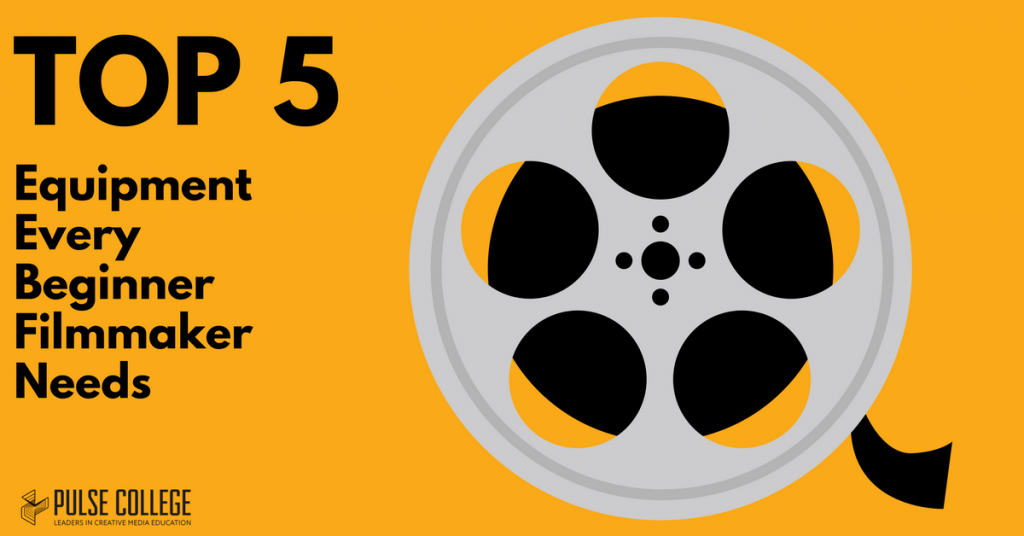Lights, camera, action…It’s never just as easy as that though is it! Check out our latest blog post below with a list of the Top 5 types of equipment essential for every novice filmmaker.
Camera
The basis of a good recording is a decent camera and the good news is that you don’t have to spend a truck load of cash these days to pick up something solid. Film recording technology has come a long way and has (thankfully!) dropped in price. Of course, the big studios still spend a small fortune but you don’t have to.
You can get some pretty decent budget to mid-range cameras like the Panasonic HC-W580 for about €350. There’s plenty of good review sites out there so do a bit of research and don’t be afraid to shop around on price.
GoPro Cameras might be worth checking out. These are extremely versatile cameras and you can accessorise till your hearts content! If you or any of your friends are into flying drones a lot of them can be fitted with GoPro’s. Why not give it a go? You’ll be able to capture some amazing aerial shots for your movie.
Audio
Next up on our list is audio equipment. Audio plays a very important role in a good film. Adding an external microphone can significantly improve the sound you capture and as long as your camera has the necessary inputs we recommend hooking one up!
There’s a few different options worth considering:
- Lapel Mics – Used to clip onto clothes to capture voices.
- Directional Mics – These record sound in front of the mic and avoid capturing too much ambient noise.
- Boom Mic – Very popular and good for capturing speech – these are the kind of mics you might see attached to the end of a long pole being held over the actors.
If you know any good sound engineers you could always ask their advice or better still ask them to do sound for the film!
Lighting
Another important aspect is lighting. Film lighting can be quite expensive so if you need a full lighting rig it could be more affordable to rent.
Lighting is a great way of creating a mood and lots of the best directors use it to great effect. The best thing you can do is plan all your shots carefully in advance and consider what light you’ll need as you plan.
Post Production – Film Editing Software
Depending on what you’re trying to do there’s several different editing packages available. Final Cut Pro and Adobe Premier Pro are two of the leading platforms when it comes to editing. They’re both very powerful software packages with tones of options.
If you’re looking to add some effects to your film Adobe After Effects is what you need to be getting your hands on! This is the piece of kit that all the pros use.
Bits & Bobs
There’s plenty of small items that come in handy when you’re out on location. We’ve all forgotten to pack something at one stage or anther so maybe do up a little check list.
Nothing worse than being on location and the battery dies. Pop a second (or third!) battery in your bag – and make sure they’re fully charged!
The same idea applies to SD Cards. You won’t want to be running out of space so make sure there’s backups to hand.
Listening back on audio can be difficult if the location is noisy. A decent set of headphones is an ideal way of listening back and making sure the audio is being captured correctly.
Consider adding some stabilisation equipment to your inventory. Tripods or a Steadicam really helps to make your shots look professional.
Backup Your Film
One final thing to consider and an extra little tip from us to you is to always backup! Make sure to backup your film either onto an external hard drive or to cloud storage such as Google Drive or Dropbox.
Take it to the Next Level
Asking yourself how to get into film? Bring your film making skills to the next level by taking a film production course at Pulse College. Drop along to any of our open days to learn more.
[openday]
FOLLOW US
